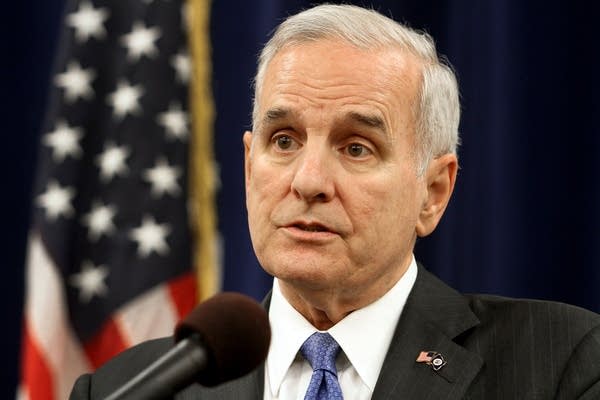Dayton pushes business to back transportation funding; House GOP offers short-term plan

Gov. Mark Dayton answers questions from the media on Nov. 5, 2014, at the Capitol.
Alex Kolyer / For MPR News 2014
Go Deeper.
Create an account or log in to save stories.
Like this?
Thanks for liking this story! We have added it to a list of your favorite stories.


